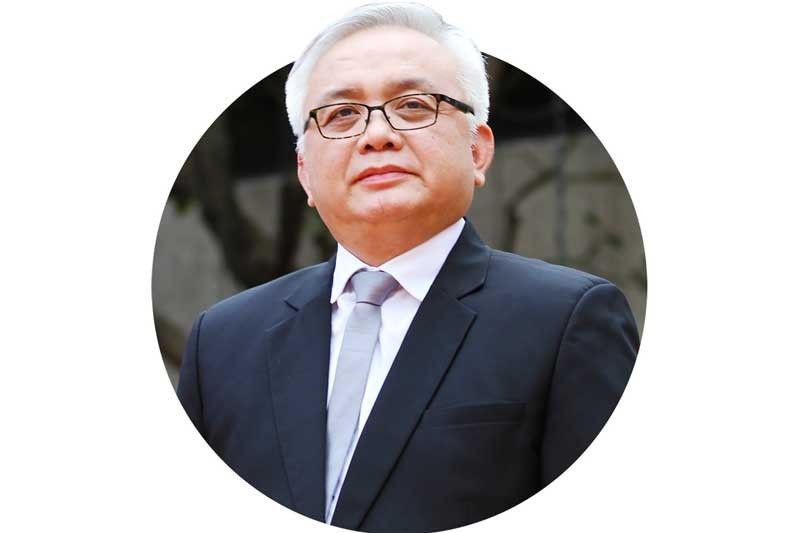The growing need for data privacy

It is about having access and control over our own information and the right to maintain that space that shields us from increasingly unwanted intrusions and manipulation.
MANILA, Philippines —These are interesting times. We now live in an age of great transformation. This is the generation that has seen a tectonic shift in what creates value in the world today. Whereas before, oil, determines the wealth of nations, now, data is the new oil and personal data, has become the world’s most powerful currency.
This momentous shift is happening at a pace unprecedented in human history and we are right at the cusp of it. This has created new business models that resulted in disruptions and in the way new products and services are created and how wealth is made.
The world’s most valuable brands are now dominated by tech-giants that have caused disruptions in the global business landscape. Facebook-the largest media publisher owns no content. Alibaba the world’s largest retailer does not even have any inventory. With Airbnb, you can book any accommodation you wish anywhere on the planet yet they don’t even own a single bed and breakfast. What they own in common is the ability to process zettabytes of personal information and the algorithms to make business decisions using this data.
Powerful computers and the internet are pushing this historic shift into overdrive. Smartphones that can be bought in Lazada for as cheap as 500 Pesos, have practically placed the entire world on the fingertips of Juan de La Cruz, allowing us to explore so much more, providing us with access to information, knowledge, products, and services we never thought possible.
Now, friends and relatives from anywhere in the world can get in touch with one another through various forms of social media. It is now easy to book a flight, shop online using your virtual wallet, find your way through all the streets in the world, hail a ride and order food delivery through your mobile phone. Health data sent via online result to faster diagnosis and treatment. Cash can be had in an instant via mobile lending apps downloaded from Google Play.
This digital revolution is sweeping through industries and governments and empowering citizens all over the globe. This revolution is powered by technology that can collect, use, store and share personal information and growing internet connectivity that is sending this information across borders at broadband speeds. These information consist of your: name, address, birthdates, email, gender, mobile nos., health record, images, real-time location, biometrics, shopping habits, online searches and many more identifiers that can be found and processed by just using your smartphone.
Every time we go online, perform a search, make a purchase using our credit card and use our mobile phones, personal data is recorded by someone, somewhere. Whenever we go online, we leave digital crumbs or trails that provide clues and insights on our preferences and choices. Companies claim that this allows them to improve their services. But this also means your data could be put on the trading block, where your online persona including your: interests, insecurities, goals, fears, and desires are sold to advertisers who pay to be able to track and target you better.
Advertising remains the most viable model on the internet. Behind everything that we do online is advertising. And our personal data is used, traded and sold to make it all possible. Suddenly, we are no longer the customer. We have become the product.
By amassing personal data, companies, and complete strangers, suddenly get to know more about us. And the more someone knows about us, the more influence and ultimately power, they have over us. Using analytics, they can influence our behavior and choices on what we buy and even whom to vote.
Also, when you lose control over your data in instances where someone uses your image without permission or uploads an embarrassing financial record like an unpaid loan, they can paint a totally different image of who you are and diminish your worth as an individual. Worse, when false assumptions are made about you and posted online for the judgment of the mob or spread using your own contact list, then, your entire future is jeopardized. Add the threats of bodily harm inflicted by cyberbullies, or outright identity theft that has caused untold anxiety and pain for countless victims around the world.
Indeed, personal data put in the wrong hands produce real harm to people. It could harm you forever because the internet never forgets.
But let me remind you that there is a bigger potential for good in using personal data. Large data sets can be utilized for health research, plan future cities and manage scarce government resources. Information in the cloud could be easily stored and accessed, managed and communicated. And when converted to knowledge and insights have resulted in great leaps in health care, government services, and more efficient transactions. These have brought tremendous improvements and modern conveniences to Mang Juan and Aling Juana. These benefits must continue. And while there’s a growing concern about privacy the quest for innovation should never stop.
The Data Privacy Act of 2012 upholds the rights of data subjects while ensuring the free flow of information that will spur the country’s development and growth.
This concept is equally important because while it is recognized that data privacy is a fundamental human right, it is not an absolute right. Our data privacy law through the National Privacy Commission strives to strike this balance between privacy, the free flow of information and the people’s right to know--balancing the right of the individuals to the needs of the larger society. Maintaining this balance is vital in establishing widespread trust among data subjects, businesses and government as we all march towards a high-trust, resilient and knowledge-based society.
Artificial intelligence, big data, machine learning and the internet of things have arrived. These nascent technologies offer new and exciting possibilities that can enhance the lives of Filipinos. We can expect that more of our personal data will be collected, sent to the cloud, packaged and ultimately sold. Assume that our ability to control our personal information will become more and more difficult.
There’s a growing need for data privacy because it is not about secrecy nor hiding a wrong. It is about having access and control over our own information and the right to maintain that space that shields us from increasingly unwanted intrusions and manipulation. It is the right to genuinely exercise our power of choice—where we can choose whom to trust and grant access to our own data because it is only us who truly holds the key.
- Latest





























